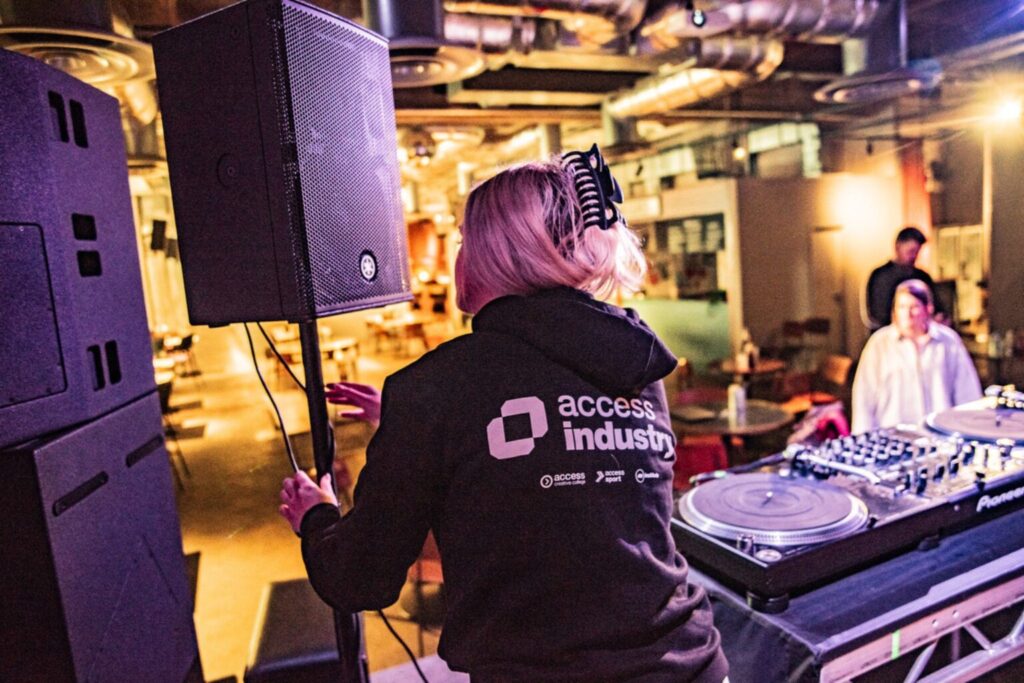Choosing the right path to take for your future career after your GCSEs can feel a little overwhelming. With so many routes to get you to the qualifications you need, from the new T Levels, BTECs, and apprenticeships, it’s not easy to see how they compare to one another.
After comparing T Levels with A Levels, it’s time to see how they measure up against other technical qualifications that can set you on the path to success.
What are T Level qualifications?

To give a brief overview, T Level qualifications are a new type of technical course for 16-19 year olds. They’re designed with employers to make sure you’re learning the skills that industries really need.
Each T Level course lasts two years and is equivalent to three A-Levels in UCAS standards. The courses are split between classroom study and 315 hours of industry placement, giving you the chance to put what you’ve learned into practice in a real workplace.
What makes T Level qualifications stand out is that they prepare you for different paths, whether that’s university, a higher apprenticeship, or going straight into skilled work. If you would like to explore more about this pathway, you can read our What are T Levels guide.
What are BTEC courses?

BTEC courses have been a popular choice for years, especially for students who prefer coursework and projects over exams. They’re designed to give you practical skills in a specific subject area and are widely recognised by both universities and employers.
However, things are starting to change in the UK. The UK government has begun phasing out some BTEC courses that may overlap with T Levels to streamline options for students. The idea is that T Levels offer a more direct link to the workplace because of the work experience they offer while studying.
That doesn’t mean that all BTECs are disappearing right away; many are still available, and some will continue alongside T Levels for the next few years. But that does mean that if you’re considering your options, it’s worth thinking about whether a T Level might give you an advantage by combining classroom learning with industry experience.
What can apprenticeships provide?

Apprenticeships are another great way to learn while you earn. They provide you with hands-on experience in a real workplace, and you can study for recognised qualifications at the same time. Depending on the level, apprenticeships can lead to certificates or even higher-level qualifications like a degree.
Compared to T Levels, apprenticeships are more focused on learning through the workplace rather than classroom-based learning. Some apprenticeships will offer 1 day a week in a college setting, or a full week per term time, for expert learning, and will require coursework or an exam at the end of the apprenticeship to qualify.
That said, T Levels can be a stepping stone into higher-level apprenticeships. After completing a T Level, you’ll have gained both the skills and the industry experience that employers are looking for, making it easier to move into an advanced or higher apprenticeship in your chosen field.
So, if you enjoy learning on the job and want to earn while studying, apprenticeships are a fantastic option, and completing a T Level first can give you a real advantage when applying.
You can find out more about the apprenticeships we offer at Access Industry.
Which one is right for you?

Choosing between T Levels, BTECs, and Apprenticeships comes down to how you like to learn and what you want to get out of your course.
If you enjoy a mix of classroom learning and hands-on experience, then T Levels could be a great fit. BTECs work well if you prefer project-based learning and continuous assessments. And, if you want to earn while you learn with full-time work experience from day one, an apprenticeship might be the best choice.
| T Levels | BTECs | Apprenticeships | |
| Type of Learning | Classroom-based learning with industry work experience | Mostly classroom/project-based learning | On-the-job learning with study alongside work |
| Duration | 2 years | 1-2 years based on level | Varies from 1-5 years depending on level |
| Assessments | Exams, practical work, industry experience | Coursework, projects, assignments | Work-based assignments, coursework, and sometimes an exam |
| Work Experience | 315 hours (45 days) | Usually optional | Full-time work experience |
| Best For | Students wanting a mix of classroom learning and real-life work experience | Students who prefer project-based learning and coursework | Students who want hands-on work experience and to earn while studying |
Remember, these routes aren’t just about learning, but about building the skills and experience that will help you to take the next step, whether that’s further education, an apprenticeship, or jumping straight into your career.
What further education courses are available?

At Access Creative, we offer both T Level and apprenticeships in digital and creative routes. Whether you’d like to combine classroom learning with an industry placement through a T Level course, or jump straight into the workplace with an apprenticeship, there’s a course to match your learning style and career goals!
T Level courses
Our T Level courses give you two years of in-depth study from industry experts, combined with 45 days of work experience to build real-world skills.
We currently offer:
- Content Creation: Build digital skills, including media production to online content, and work on live briefs from industry partners.
- Software Development: Develop coding, problem-solving, and technical skills while gaining industry experience in one of the fastest-growing industries.
Apprenticeship courses
If you’re ready to earn while you learn, our apprenticeships allow you to train on the job while studying towards your qualification.
We also offer the same courses in apprenticeship format through our sister company, Access Industry:
- Level 3 Software Development Technician: A great starting point for anyone new to coding and technical support roles.
- Level 4 Software Developer: Ideal for those looking to take their technical skills further and work on professional software projects.
- Level 3 Content Creation: Perfect for students passionate about digital media, marketing, and producing engaging online content.






